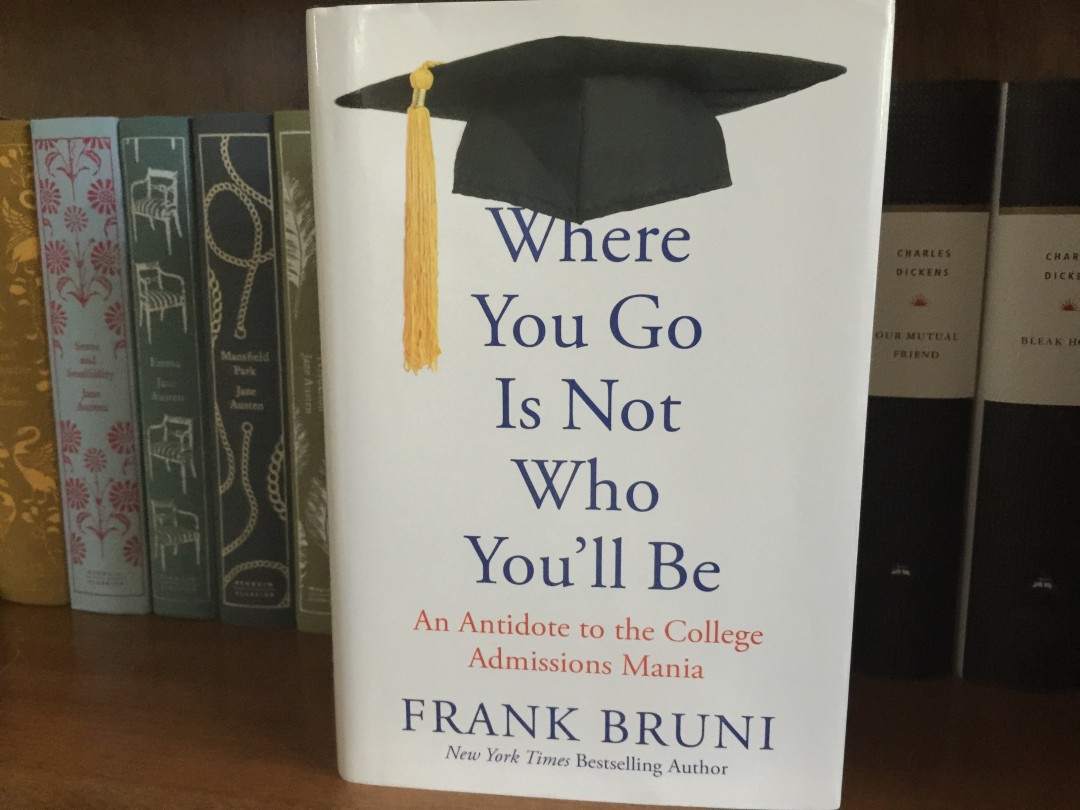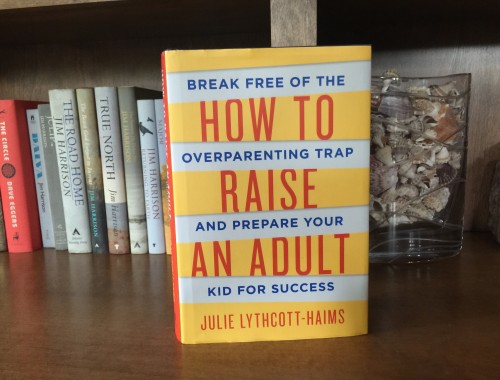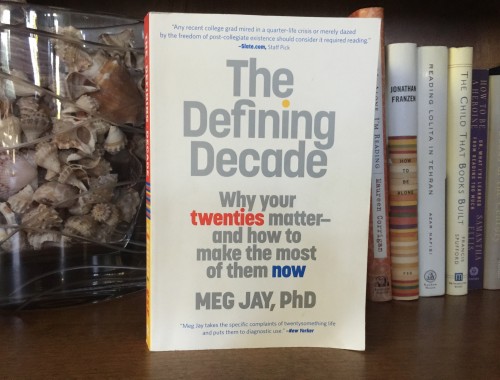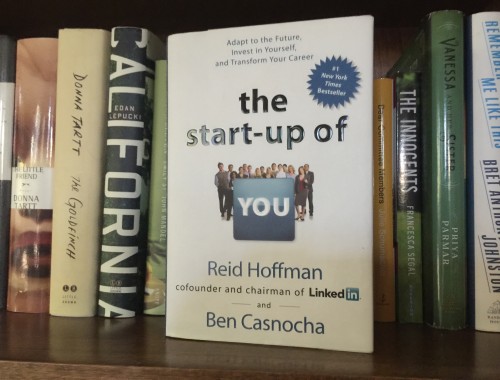It seems every book in this college and career genre has a subtitle. Frank Bruni’s excellent book is subtitled: An Antidote to the College Admissions Mania. (I’m not sure it’s as prescriptive as all that.) As is probably clear by now, I’m not a big believer in name brands. Naturally, I’m going to have come to the college admissions process as a skeptic after years in advertising. So I agreed with Mr. Bruni’s message, although perhaps for different reasons. Much of the research he quotes were things I’d encountered elsewhere before my sons were looking at colleges and it had influenced their decisions. The book is full of examples of amazingly successful people who went to schools you’ve never heard of because those schools were near home, offered scholarships, or had unique programs that would let them develop as human beings.
In discussing Google, quoting an article by fellow New York Times writer Tom Friedman, Bruni writes “…in an age when innovation is increasingly a group endeavor, it (Google) also cares a lot about soft skills—leadership, humility, collaboration, adaptability and loving to learn and re-learn.” Bruni interviews another Google executive, Parisa Tabriz, who says “…whether they have a degree or not is a data point…I’m looking for experience doing that (making software more secure), which they wouldn’t do in a classroom. They might do it in their free time, as a hobby.” Employers are quoted talking about which school essentially being meaningless to them, where GPA might matter as an indicator of being goal-oriented. Involvement in campus life and those achievements matter. People repeatedly drive home that the further you get from college, the less people care, and the less possible influence is has even on the opportunities that might be presented.
Bruni has great access to a wide range of professors at impressive-sounding schools and they all bemoan the state of their academically well-qualified students. MIT students are “fragile thoroughbreds…trained to peak performance on tests and in term papers, but not to the unpredictability and tumult of adulthood.” His own Princeton students are “less accustomed to criticism than I expected students to be…I kept wishing for less cunning and more heart.” Anthony Marx, a former Amherst president asks if we’re mis-shaping our elite, “creating a culture in which the sale is more important than the product?” And he gets great quotes from grads who have had some time out in the world and are now saying they wished they’d picked schools that had offerings in line with their passions, not just schools that their friends and families were passionately impressed by.
I once had a student on a debate trip I was chaperoning tell me he could never go to Grinnell College because “my mother would have to avoid social events with her friends the whole four years.” Amazing school (seriously interesting academic options with that great Midwestern welcoming feel) also with a tremendous endowment, it would have been much less expensive in dollars for this student and much richer an experience.
I knew early on in my parenting that without a serious amount of tiger parenting, even an incredibly bright child doesn’t make it to HYPS as a teenager. Someone has to drive that six-year-old to daily sports or music lessons and it wasn’t going to be me or my husband. I tended to pull out the Wednesday envelope of fliers from our sons’ elementary school and say “Anyone want to try out for soccer? (Half-second pause, flier over the recycle bin.) No, okay then, let’s go walk the dog.” Internationally renowned brand-name U was probably never in the cards for our kids by the time they’d finished sixth grade. Everyone has their biases, and I am striving to be a reliable narrator. You’ve got to see my biases clearly in order to evaluate what I’m saying and decide whether it resonates for you. Where they are conscious biases, I’ll try and call them out.
Recommendation? Worth reading if you’ve just begun high school or your college search. If you’re likely to have your pick of schools, there’s a lot of food for thought here. If you’re a strong student, but not likely to have the kind of hook that opens these admission doors, you may find this book heartening. If I only had time to read one book on this subject, I’d read Colleges that Change Lives instead. And yep, bias alert, my husband and both my sons all went to different schools in that book. If you’re not at this stage of life for yourself or your children, then I don’t think there’s much to hold your attention here despite Mr. Bruni’s skillful writing and his access to really interesting interviewees. It is a fast read, though, so if it sounds interesting to you, easily worth the time.





No Comments